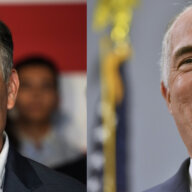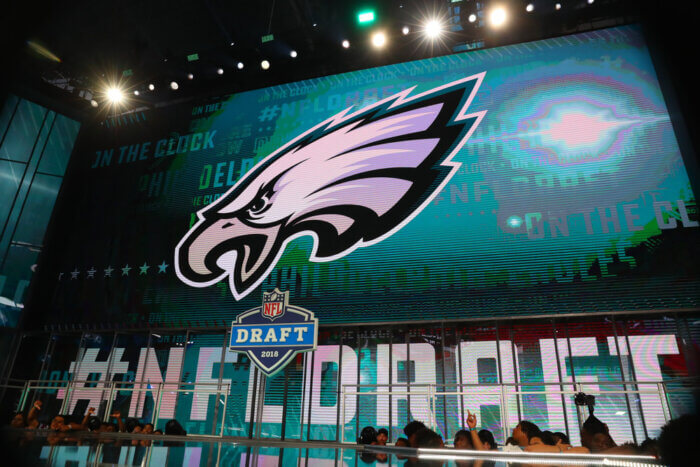Adam Bruckner stands on the front lines of recession fallout, armed with a checkbook. The setting is a park off Logan Square where he’s signed more than $50,000 in $10 and $13.50 checks so the homeless and poor can get the birth certificate or state ID they need for a job, a necessary step in any personal stimulus plan.
Bruckner, assistant Philadelphia Kixx coach whose faith compels him to fill in a gap left between government agencies with personal and donated money, said last Monday that he’s seen noticeable changes in clientele.
They’re not the “stereotypical” living-on-the-street homeless. They’re mothers, college grads, returning soldiers and others unexpectedly without shelter. They need a letter from a shelter, rehab or halfway house, which proves they’ve started to help themselves.
“The number of capable people, those who want to work but can’t find a job, has increased,” he said moments after a man walked up to him, thanking him for the chance to afford getting his military ID back.
Much of the shift is foreclosure-related, like the 21-year-old pregnant woman there with her young son who came home from work to find sheriff’s officers waiting. Her landlord had been foreclosed on, so her Mt. Airy rental was gone and she was shelter-bound.
“You have to be desperate to stand in this line in the winter, but even when it’s freezing, snowing, they do,” Bruckner said. “If there was some other place where they could go, they’d be there. The shelters are stretched so thin that they just can’t afford to do this.”
Homeless policy lacks aim
Bruckner hasn’t gotten any indication he and other volunteers would be asked to leave the Parkway like he did under the Street administration.
But does a hundreds-deep line of poor people fit former Gov. Ed Rendell’s statement that City Hall to the Museum of Art was being restored “as a tree-lined boulevard that is an appropriate home for some of Philadelphia’s most famous landmarks and cultural institutions”?
“Philadelphia is stuck in the early ‘90s in terms of homelessness policies,” said Phyllis Ryan, executive director of the Philadelphia Committee to End Homelessness, “and they will always chase unattractive people from the public spaces fancied by rich people.”





























